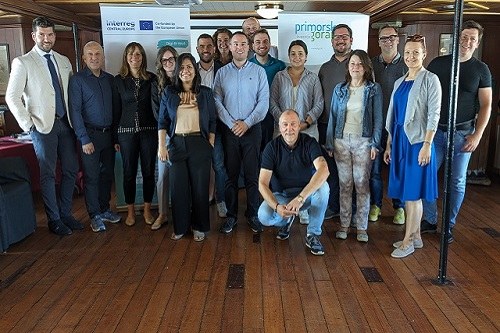Addressing the challenges and opportunities of digital transformation in public institutions, academia and small and medium-sized enterprises; helping them to adapt to the new era, develop the necessary skills and achieve digital wellbeing. To create a sustainable and future-oriented working environment. These are the main objectives of DIGI-B-WELL, a three-year European project funded by the INTERREG-Central Europe programme and inaugurated on 4 June in Rijeka (Croatia). Coordinated by Primorje-Gorski Kotar County (Croatia), DIGI-B-WELL brings together nine partners from seven Central European countries: three universities - the University of Bologna, together with the German Ilmenau University of Technology and the University of Economics in Bratislava (Slovakia) -, three public institutions and three business support networks.
The team will use a collaborative and multidisciplinary approach to focus on different digitisation opportunities according to context and age group, with a particular emphasis on the over-55s and the manufacturing sector. The aim is to promote behavioural change and foster employee engagement to increase competitiveness and service orientation.
Based on the concept of 'digital-era-fit management', the project aims to improve competences and operational management in the digital age by upskilling leaders with soft and hard skills. It aims to prevent digital stress and burnout by promoting the responsible use of technology in the context of work.
"DIGI-B-WELL will develop a digital platform containing various toolkits, such as self-assessment tools for the level of digital transformation and digital well-being of public institutions, academia and small and medium-sized enterprises. It will also define training modules to update digital skills and other resources for organisations", says Rita Chiesa, Professor of Work and Organisational Psychology at the Department of Psychology 'Renzo Canestrari' and coordinator of the University of Bologna team involved in the project.
It will then analyse the so-called 'workation', a new approach to work that takes full advantage the flexibility offered by digital technologies and remote working, which is increasingly popular among the self-employed, freelancers and employees of companies that have adopted it. The aim is to understand whether this approach can improve work-life balance and increase productivity.
The research team at the University of Bologna will focus in particular on the initial analysis of needs and challenges related to digital transformation, as well as the prefiguration of future scenarios. The results of this first phase will be used to develop the transnational digital transition strategy, which is the final objective of the project.

